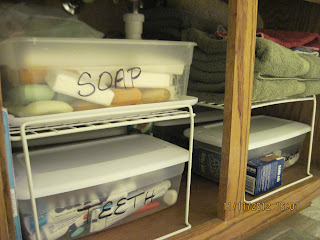I'd like to address this one to the Baby Boomers. Don't get all riled up just because I said that, my parents are Boomers and I love them dearly. It's just that I get tired of being called a part of the "Gimme Generation" by people who have no idea what they're talking about.
Ignore birth control girl, and everything you've seen on the news about Occupy. The news media likes to stick a camera in the face of the person who's going to provide a lucrative soundbite for a sensational story. They have no interest in reporting the truth.
The truth is that I've been paying into Social Security since I joined the workforce, knowing full well that I'll never see a dime of it back.
The truth is that Medicare will not be there for me when I retire.
The truth is that I'm not voting for your political candidates because they suck, and when I try to get involved in the political process you blow me off.
The truth is that I didn't want to fight in your stupid war, but I needed a job and it was the only one I could get with no experience and no college.
The truth is that I don't care about your "War on terror" because I'm pretty sure you made it up, and we can't afford to pay for it.
The truth is I can't believe you're so willfully ignorant of anything that isn't broadcast on the news, and that you blindly believe everything you see on TV. I'm a product of public schooling and even I know more about research and critical thinking than that.
The truth is that I don't care about your "protection of marriage" crap, because I saw the ER staff bar my gay friend from seeing her partner after she was in a car accident because she wasn't family, and I thought that was B.S.
The truth is that I don't care about your "war on drugs", because I know it's not working and it's costing me money. Besides, you smoked weed in the 60s. Don't be a hypocrite.
The truth is that your fiscal cliff sucks, and I can't afford to pay any more taxes.
The truth is that my mortgage is underwater, I'm drowning in student debt, my grocery bill is eating up my paycheck, my medical bills go unpaid because my employer cut benefits after Obamacare passed, I haven't gotten a raise in years and I can't ask for one because I'll be laid off and my job outsourced if I do. By the way, I'm declaring bankruptcy.
The truth is that you can't have my guns, even if it's "for the children" because if I give them up I have no way of addressing a group of tyrants who don't represent me using force to take what little I have.
I don't want you to "Gimme" anything. The only thing I want from you is to be left alone. Leave my paycheck alone. Leave my healthcare (or lack thereof) alone. Leave my Constitution alone. Leave everyone else alone. Quit meddling with things, you're just making it worse.
Don't push me. I will push back.
Ignore birth control girl, and everything you've seen on the news about Occupy. The news media likes to stick a camera in the face of the person who's going to provide a lucrative soundbite for a sensational story. They have no interest in reporting the truth.
The truth is that I've been paying into Social Security since I joined the workforce, knowing full well that I'll never see a dime of it back.
The truth is that Medicare will not be there for me when I retire.
The truth is that I'm not voting for your political candidates because they suck, and when I try to get involved in the political process you blow me off.
The truth is that I didn't want to fight in your stupid war, but I needed a job and it was the only one I could get with no experience and no college.
The truth is that I don't care about your "War on terror" because I'm pretty sure you made it up, and we can't afford to pay for it.
The truth is I can't believe you're so willfully ignorant of anything that isn't broadcast on the news, and that you blindly believe everything you see on TV. I'm a product of public schooling and even I know more about research and critical thinking than that.
The truth is that I don't care about your "protection of marriage" crap, because I saw the ER staff bar my gay friend from seeing her partner after she was in a car accident because she wasn't family, and I thought that was B.S.
The truth is that I don't care about your "war on drugs", because I know it's not working and it's costing me money. Besides, you smoked weed in the 60s. Don't be a hypocrite.
The truth is that your fiscal cliff sucks, and I can't afford to pay any more taxes.
The truth is that my mortgage is underwater, I'm drowning in student debt, my grocery bill is eating up my paycheck, my medical bills go unpaid because my employer cut benefits after Obamacare passed, I haven't gotten a raise in years and I can't ask for one because I'll be laid off and my job outsourced if I do. By the way, I'm declaring bankruptcy.
The truth is that you can't have my guns, even if it's "for the children" because if I give them up I have no way of addressing a group of tyrants who don't represent me using force to take what little I have.
I don't want you to "Gimme" anything. The only thing I want from you is to be left alone. Leave my paycheck alone. Leave my healthcare (or lack thereof) alone. Leave my Constitution alone. Leave everyone else alone. Quit meddling with things, you're just making it worse.
Don't push me. I will push back.







































